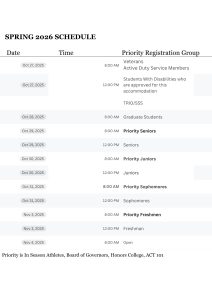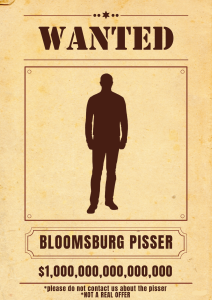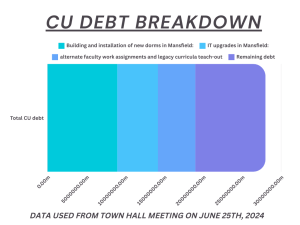First Word
Why President Trump shouldn’t be impeached
October 17, 2019
At the center of American politics, Congress decided to investigate impeachment of President Donald J. Trump. Impeachment of a president is rare, considering only two have ever been tried. In the case of President Trump, the House has launched an impeachment inquiry over the President’s phone call with the President of Ukraine, Volodymyr Zelensky.
Impeachment refers to charges being brought against a federal official by the House. It begins when the House starts an inquiry that examines reasons why impeachment should be pursued, typically led by the House Judiciary Committee. Witnesses are first questioned and evidence is examined before a vote is reached.
Once the committee adopts charges, it then goes to the full House for vote. Once the House passes the charges, the individual becomes impeached and is subject to trial by the Senate, in which it votes on the impeachment charges. If passed by two thirds vote, the individual is removed from office and barred from serving in any office or public trust under the United States as per Article 1 Section 3 Clause 7 of the Constitution.
Impeachment can be pursued for treason, bribery, or any high crime or misdemeanor as stated in Article 2 Section 4. In the case of impeachment of President Trump, there is no evidence of any attempt to commit a crime by talking to the leader of Ukraine.
Democrats argue President Trump committed an impeachable offense by threatening to withhold military aid to Ukraine unless they cooperated with the President by investigating former Vice President Joe Biden’s son’s possible corruption in a Ukrainian gas company.
Democrats argue that the President was soliciting foreign aid in his reelection campaign by asking the leader of Ukraine to investigate this possible corruption case and report back to the President. Facing congressional pressure, the White House released a transcript of the President’s phone call with President Zelensky.
When the United States gives foreign aid, it can be removed at the President’s request for any reason. In the transcript of the phone call released by the White House, nothing is mentioned of military aid to Ukraine, but rather a corruption case that President Trump was asking for assistance from the Ukrainian government in examining.
If the President did seek to withhold military aid from Ukraine and use it as quid pro quo to his advantage, why would he release the transcript? The President understands he is not above the law, especially because even if he did believe that he was, he would have not released the transcript to the public.
In the case of the second whistleblower report, how can the President be guilty of soliciting foreign aid in his reelection campaign if he has not used it to his political advantage? In his conversation, the President asked if Ukraine was willing to help examine possible corruption charges by an American businessman in a Ukrainian company.
The American government has a responsibility to oversee the well-being of its citizens both at home and abroad. If an American citizen is under investigation by a foreign government for possible breaking of the law, the federal government has the responsibility to be involved. Joe Biden’s son was never prosecuted, as the prosecutor responsible for investigating Biden’s business practices was removed by the previous Ukrainian President, under pressure by then Vice President Joe Biden. The case was never investigated until this year by the Trump Administration.
With Joe Biden acting as Vice President under the Obama Administration, pressuring a foreign government to drop an investigation of his son meant that he was using the powers of the Vice Presidency to influence the actions of a foreign country to protect a member of his family from criminal prosecution. Is this not an example of using political office to favor oneself or one’s family?
Secondly, how can the President be guilty of using foreign aid for his political benefit when the contrary is happening? A Quinnipiac University poll from September 30 shows that support of removing the President from office has grown from 37 percent of registered voters to 47 percent, a 10 percent increase in the two days in which it was conducted.
Even CNN conducted a poll showing impeachment support has grown 6 percent from May 2019 to September 30. With both polls showing impeachment support growing, how can President Trump be guilty of using foreign aid to his benefit when more people are supporting his removal from office?
The impeachment inquiry against the President is politically motivated. When the House last launched an impeachment inquiry against a sitting President, it was in 1998 when Bill Clinton became impeached over lying about the Lewinsky affair to Congress and obstruction of justice originating from a lawsuit by Paula Jones. The Republicans controlled the House. The Republicans allowed Democrats to be involved in the impeachment process by allowing them to directly question witnesses and evidence.
President Clinton got to confront his accusers, unlike President Trump who has no idea who is accusing him of wrongdoing; even Congress and the American people are not sure who the whistleblowers are. In the current inquiry, these whistleblowers have not testified to Congress and their claims have not been corroborated. Until they do so, the impeachment inquiry is based off allegations, not facts.
Though impeachment is uncommon, when it does occur there is a precedence that is followed. The impeachment process of Richard Nixon began with the passage H.R. 803 officially giving power to the House Judiciary Committee to conduct an investigation. Impeachment of Bill Clinton began with the adoption of the Starr Report. Adoption of the Starr Report led to the House passing two articles of impeachment against President Clinton.
The inquiry against President Trump was launched on allegations from whistleblowers, with no resolution or independent investigation launched, but by word from House Speaker Nancy Pelosi. This is the first impeachment inquiry launched not based off precedent, but rather a willingness to remove President Trump from office.
Robert is a sophomore Political Science major and is a member of the BU Republicans.


























